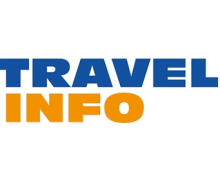It’s a Herculean task to stay on top of ever-changing travel requirements, red lists, quarantines, PCR test requirements and border closures, but travel agents are doing what it takes to boost their consulting value and provide a very necessary new information service to customers.
Many travel agency groups are dedicating resources to keeping abreast of the latest changes. For independent consultants and consortiums, Asata suggests Timatic is a useful tool that can be used to track requirements for various destinations.
“As part of their value proposition, travel agents need to help their customers navigate an increasingly complex environment,” said Asata ceo, Otto de Vries. “And it is up to us, as travel agents, to keep ourselves informed.”
Red lists, no flights and quarantines were flagged by agents in a recent Travel News poll as the most serious challenges holding back sales of travel to foreign countries, and the cost of the quarantine at the start of a trip certainly is prohibitive, according to some agents.
Otto said Asata was using its network to address the issue of red lists. “Within South Africa, Asata is working with the TBCSA (as a board member) to get South Africa off red lists and other travel advisories. We are in the process of preparing a comprehensive document with the input of various medical and scientific COVID-19 experts. We are also developing a targeted communications plan and are actively lobbying the countries that have decided to classify South Africa as a red-list destination.”
He added: “Asata is doing its level best to continue to keep its members informed at all times. Further to that, Timatic is a critical and useful tool for agents that can and should be consulted when it comes to the latest entry requirements. As part of their value proposition, travel agents will need to help their customers navigate an increasingly complex environment.”
Quarantine costs
The primary challenge with countries that have classified South Africa as a ‘red list’ destination, Otto agreed, was the quarantine requirement. “Customers need to decide whether they are ready and willing to accept the complexities – not to mention the costs – that come with the quarantine process.”
Pentravel marketing and product manager, Vicky Steinhardt, said leisure business had been affected by these extra costs. “Usually, being placed on a red list means that travel for tourism purposes isn’t allowed. Leisure is the majority of our business, so it is having a huge impact. We are welcoming passengers who are travelling for other reasons and trying to help them navigate the requirements for each country. However, costly quarantine facilities for those who are allowed to travel do make it unaffordable for a lot of travellers.”
Pentravel is not off-selling ‘red list’ destinations. Rather, Vicky explained, the brand had seen it as an opportunity to upskill staff and boost its value proposition.
Pentravel also had a team monitoring and communicating updates as they happened, said Vicky. “Everyone shares whatever information they get, so we don’t just rely on one person or department to be on top of everything. We make sure that we are on all the supplier and tourism board newsletters, so we are notified immediately when changes occur. We rely heavily on the travel agent community on various social platforms and through the relationships we have with our industry.”
Consulting value
TAG ceo, Jonathan Gerber, said the agency group was also staying on top of changing requirements. With many customers travelling into Africa, Jonathan believes that keeping abreast of changing travel rules and country ‘red lists’ is a major selling point for his business.
He also believes that travel agents are accustomed to making the most of challenging operating environments, and said the number of agents still operating more than 13 months into the pandemic was a testament to the strength and resilience of the community.
“My view is that red lists are a good thing for agencies. The rules are always changing and we’re working in an always-changing environment. You should be trusting a specialist. These sorts of crises bring people back to reality; the Internet is great and all that, but things change daily, even hourly. We have a team that posts daily about new restrictions, openings, etc. It’s not to say that we won’t get it wrong occasionally, but we have got 99% covered. Joe Public has 5%.”















